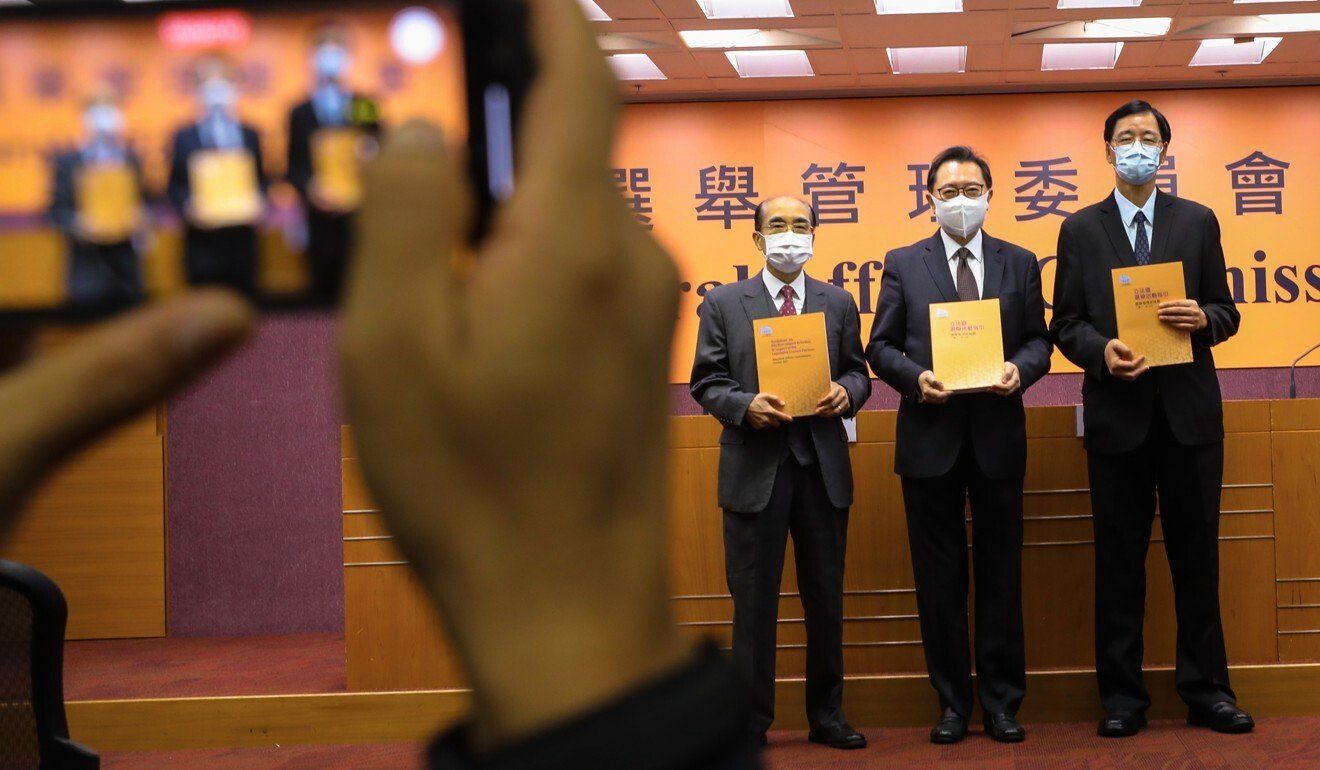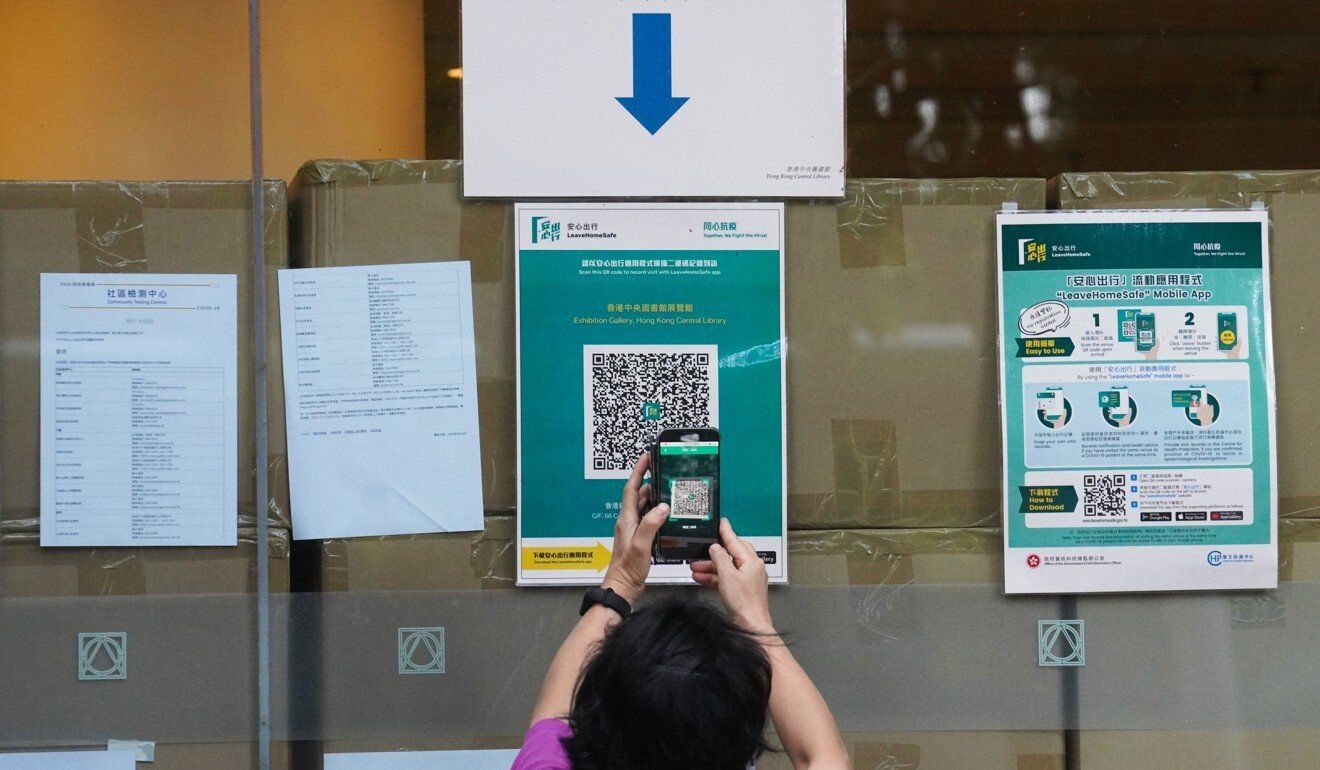Hong Kong News

Hong Kong authorities fail to strike deal on new polling stations across border
Hong Kong authorities have failed to reach a consensus with their mainland Chinese counterparts on allowing new polling stations to be set up across the border or at boundary control points to cater for city residents living on the other side.
Justice Barnabas Fung Wah, head of the Electoral Affairs Commission, confirmed on Monday that the status quo would remain unchanged, despite repeated calls from the city’s pro-Beijing camp for authorities to make it easier for Hongkongers on the mainland to take part in the coming Legislative Council election.
“Even if people are allowed to return to the city to spend 15 minutes casting their ballots at the border crossing, do they need to be under quarantine after going back [to the mainland]? This is a practical issue that Hong Kong cannot resolve alone,” he said.
“The prerequisite is whether the Constitutional and Mainland Affairs Bureau can first settle the underlying issues.”
 Electoral Affairs Commission head Barnabas Fung (centre) releases the
guidelines for the coming Legislative Council election on Monday.
Electoral Affairs Commission head Barnabas Fung (centre) releases the
guidelines for the coming Legislative Council election on Monday.
Fung appealed to voters living across the border to “reserve sufficient time” for quarantine arrangements if they wished to take part in the coming election.
The idea of adding new polling stations for Hong Kong voters living in the Greater Bay Area was first floated by the pro-establishment camp more than a year ago in response to the ongoing pandemic-related travel restrictions preventing quarantine-free movement across the border.
Secretary for Constitutional and Mainland Affairs Erick Tsang Kwok-wai had said in October last year that authorities were “proactively studying” relevant proposals, but noted that some issues had to be addressed, such as how to securely transport ballots to and from polling stations, and how existing electoral laws might be amended to allow the expansion.
But with just two months left before the legislative poll – the city’s first general election since a major Beijing-decreed overhaul of its political system – Fung said those arrangements were still in the “study phase”. The commission, he added, had so far received no updates as to how they might be executed.
The Post has reached out to the Constitutional and Mainland Affairs Bureau for comment on the matter.
Scholars and opposition politicians had previously warned against establishing new polling places across the border, citing concerns over the potential for electoral fraud and warning that pro-democracy candidates could be disadvantaged by the censorship of their campaign materials.
According to the most recent national census data, released in May, about 370,000 Hong Kong residents aged 18 or above live on the mainland. According to the Legislative Council Ordinance, voters must “ordinarily” reside in Hong Kong.
Shiu Kin-por, head of the Guangzhou branch of the pro-Beijing Federation of Trade Unions, expressed disappointment on Monday at the lack of new arrangements for cross-border voters.
“Ordinary citizens have to make a living. How can you expect them to be isolated for 21 days in Guangzhou after returning to Hong Kong just for a vote?” he said.
Fung on Monday did note that the government was taking steps to ensure the coronavirus pandemic did not disrupt the election in other ways, including by setting up voting booths at the Penny’s Bay quarantine facility and designating special sections inside the city’s hundreds of polling stations for voters who failed temperature checks.
However, the commission’s guidelines for the December 19 vote, also released on Monday, did not address whether voters would be required to register their polling station visits through the government’s “Leave Home Safe” Covid-19 exposure notification app.
Under a new policy, use of the app will become mandatory at all government facilities from next month, a move advocates say will effectively bar some disadvantaged groups from the premises.
On that subject, Fung told the press on Monday that more time was needed to make a decision, adding that electors’ privacy would be a major consideration.
“Some polling stations are located in venues lent by the government. If scanning the app becomes compulsory as requested by the venue owner, we will think about how the issue can be resolved,” Fung said.
 Use of the ‘Leave Home Safe’ exposure notification app will become mandatory at government buildings from next month.
Use of the ‘Leave Home Safe’ exposure notification app will become mandatory at government buildings from next month.
Meanwhile, voting hours at the city’s 620 polling stations set up across its 10 geographical constituencies will be shortened by one hour on election day, opening at 8.30am – as opposed to 7.30am – and closing at 10.30pm.
Fung said that would allow staff more time to conduct final checks of equipment and network connections in an attempt to avoid a repeat of the unexpected delay in vote counting following September’s much smaller Election Committee poll.
The election watchdog was widely pilloried for taking 14 hours to tally the votes in that race, despite it only involving 4,380 ballots.
Under Beijing’s electoral shake-up, aimed at ensuring only “patriots” administer Hong Kong, the Legislative Council was expanded to 90 seats, but 40 will be returned by the newly empowered Election Committee, which is dominated by the pro-establishment camp.
Thirty seats will be returned through trade-based constituencies, while just 20 will be directly elected by average voters in the city’s geographic constituencies.
In 2016, half the members of the then 70-seat Legco were popularly elected.











